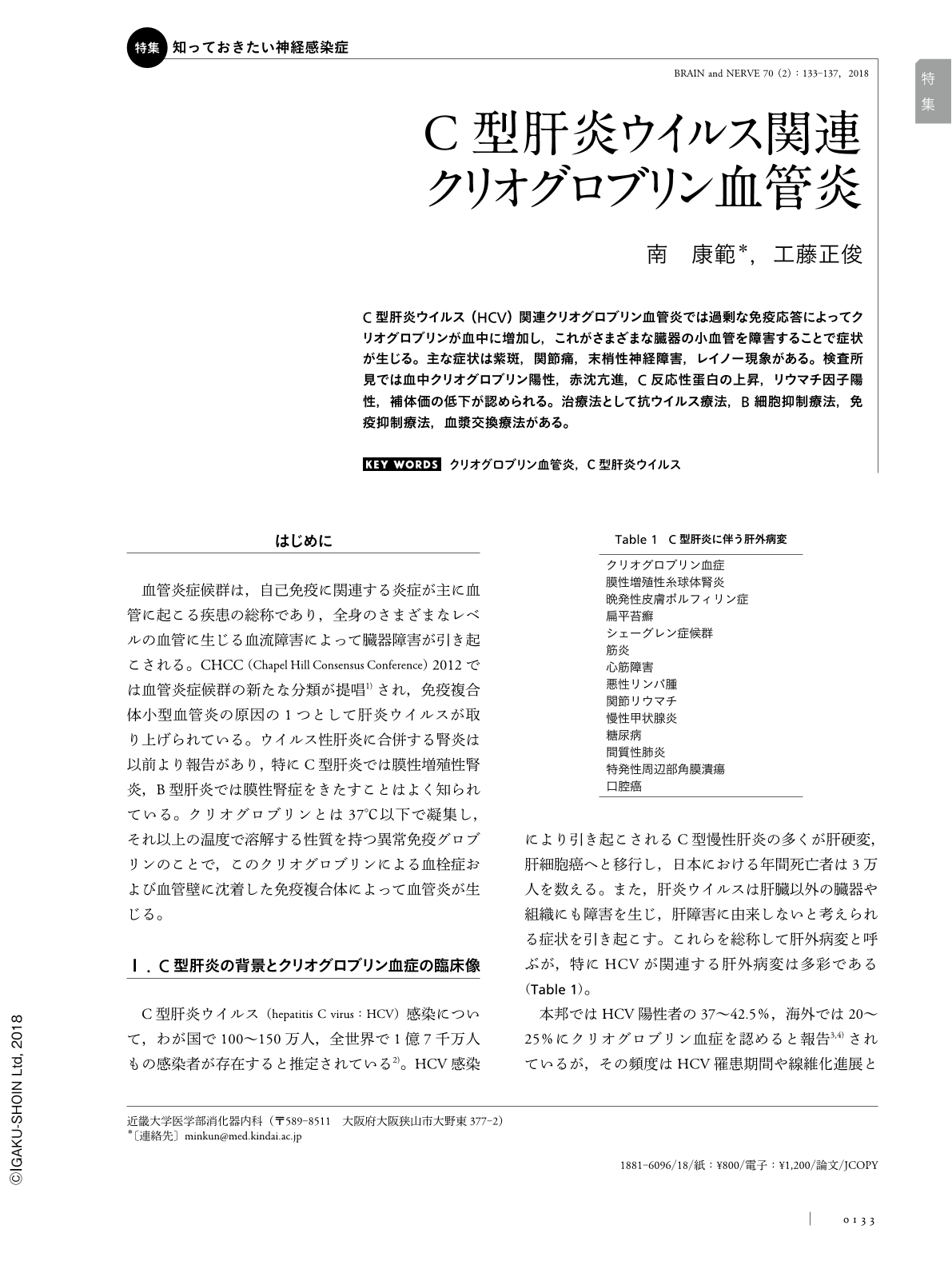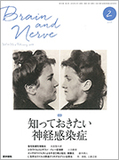Japanese
English
- 有料閲覧
- Abstract 文献概要
- 1ページ目 Look Inside
- 参考文献 Reference
C型肝炎ウイルス(HCV)関連クリオグロブリン血管炎では過剰な免疫応答によってクリオグロブリンが血中に増加し,これがさまざまな臓器の小血管を障害することで症状が生じる。主な症状は紫斑,関節痛,末梢性神経障害,レイノー現象がある。検査所見では血中クリオグロブリン陽性,赤沈亢進,C反応性蛋白の上昇,リウマチ因子陽性,補体価の低下が認められる。治療法として抗ウイルス療法,B細胞抑制療法,免疫抑制療法,血漿交換療法がある。
Abstract
Cryoglobulins are produced by the over-stimulated immune system of patients with hepatitis C virus (HCV). HCV-induced cryoglobulinemic vasculitis primarily affects small-sized vessels of systemic organs. The most common symptoms are purpura, joint pain, and peripheral neuropathy or Raynaud phenomenon. The blood tests of patients with HCV may exhibit raised erythrocyte sedimentation rate and C-reactive protein levels, positive rheumatoid factor and cryoglobulins, and decreased complement levels. Therapeutic options for HCV-induced cryoglobulinemic vasculitis, include anti-virals, Rituximab, steroids, immunosuppressant drugs, and plasma exchange.

Copyright © 2018, Igaku-Shoin Ltd. All rights reserved.


